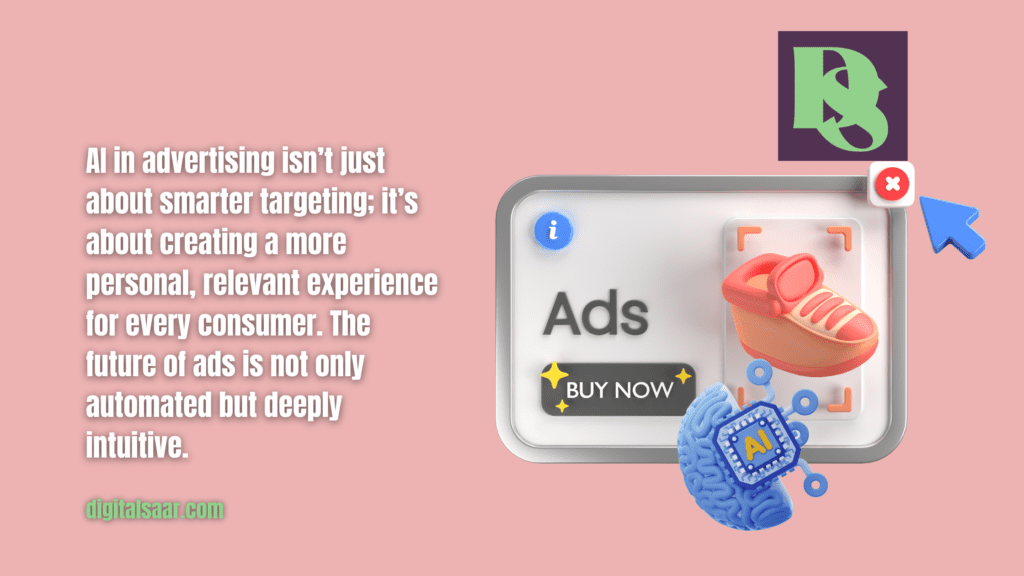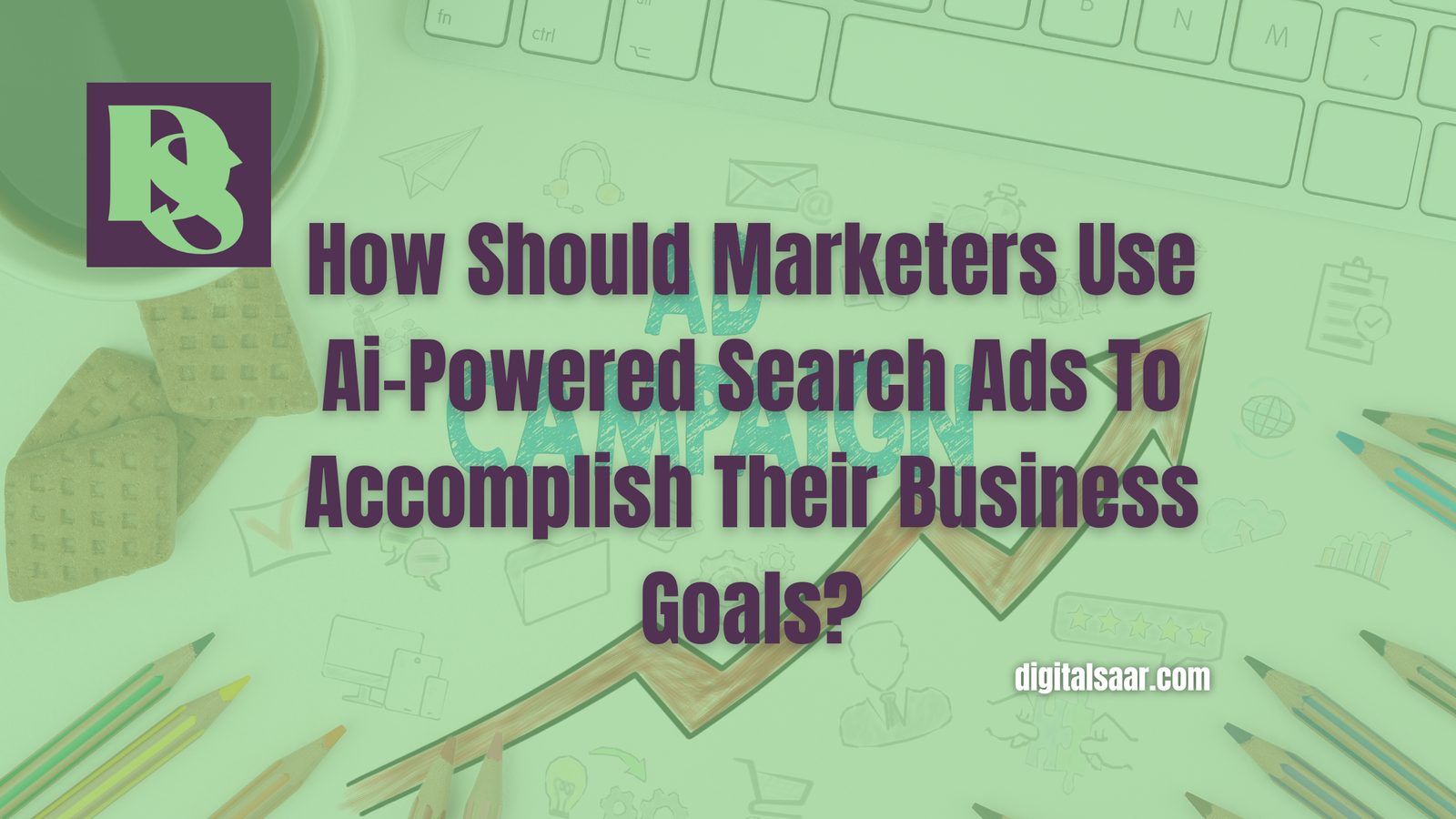How should marketers use AI-powered search ads to accomplish their business goals? In today’s fast-paced digital world, this question is more relevant than ever. AI is transforming search advertising, taking it from broad-stroke tactics to laser-focused precision. With AI, your ads can reach the right audience at the perfect moment, all while optimizing bids and tailoring messages automatically.
But how do you ensure AI works for you and not the other way around? The key is in understanding how to strategically harness its power. This post will show you how to leverage AI-powered search ads to boost ROI, streamline campaigns, and stay ahead of the competition. Ready to make the most of AI in your marketing strategy? Let’s get started.
What Are Ai-Powered Search Ads?
AI-powered search ads are the next evolution in digital advertising, combining the precision of machine learning with the strategic goals of marketers. These ads are designed to dynamically optimize your campaigns, using real-time data and predictive algorithms to enhance performance. But what exactly sets AI-powered search ads apart?
- Automated Bidding: AI analyzes vast amounts of data to adjust your bids in real time, ensuring you’re getting the most value for every ad dollar spent. This means less manual tweaking and more strategic focus on achieving your business goals.
- Dynamic Ad Creation: Say goodbye to one-size-fits-all messaging. AI generates personalized ad content tailored to individual user behaviors and preferences, increasing relevance and engagement.
- Advanced Audience Targeting: AI-powered search ads go beyond basic demographics, diving into behavioral patterns, purchase history, and even predictive insights to target the right audience at the right moment.
- Continuous Optimization: Unlike traditional ads, which often rely on set-and-forget tactics, AI-powered search ads continuously learn and adapt. They fine-tune everything from keywords to ad copy, driving better results with minimal manual intervention.
- Predictive Analytics: AI doesn’t just react—it predicts. By analyzing trends and patterns, AI can forecast future consumer behavior, allowing marketers to stay ahead of the curve and proactively adjust their strategies.
How Should Marketers Use Ai-Powered Search Ads To Accomplish Their Business Goals?
AI-powered search ads are a game-changer, but to truly reap their benefits, marketers need a strategic approach. Here’s how you can use AI-powered search ads to achieve your business objectives:
Define Clear Objectives
Start with a clear understanding of what you want to accomplish. Whether it’s increasing brand awareness, driving website traffic, or boosting conversions, aligning your AI-powered search ads with specific business goals is essential. AI can optimize for various outcomes, but it needs direction.
Leverage Automated Bidding:
AI excels at managing bids in real-time. Set your campaign goals—like maximizing clicks or achieving a target cost-per-acquisition (CPA)—and let AI handle the bidding. This not only saves time but ensures your budget is used effectively to drive results.
Personalize with Dynamic Ad Content:
AI can create and serve ad variations tailored to individual user behaviors and preferences. This means each user sees an ad that resonates with their interests, increasing engagement and conversion rates. The more personalized your ads, the more likely they are to connect with potential customers.
Utilize Predictive Analytics:
AI-powered search ads aren’t just reactive; they’re proactive. Use predictive analytics to anticipate future trends, customer behaviors, and market shifts. This allows you to adjust your strategies before your competition even sees the change coming, keeping you ahead of the curve.
A/B Test Smarter:
Traditional A/B testing can be time-consuming, but AI can automate and accelerate the process. By continuously testing and optimizing ad variations, AI ensures that only the best-performing ads are delivered, maximizing your ROI.
Monitor and Optimize:
While AI can automate much of the process, it’s important to regularly review performance metrics. Use AI-driven insights to refine your strategies, ensuring your campaigns are consistently aligned with your evolving business goals.

What Are The Benefits Of Using Ai In Search Ads?
AI-powered search ads are revolutionizing the way marketers reach and engage their audiences. Here’s how leveraging AI can give your search ad campaigns a competitive edge:
- Precision Targeting: AI excels at analyzing vast amounts of data to identify and target the most relevant audience segments. By understanding user behavior, demographics, and search intent, AI ensures your ads are shown to the right people at the right time, leading to higher conversion rates.
- Automated Efficiency: Say goodbye to manual adjustments and time-consuming optimizations. AI automates the bidding process, ad placements, and even keyword selection, freeing up your time to focus on strategy. This automated efficiency not only saves time but also ensures that your campaigns are continuously optimized for peak performance.
- Personalized Ad Experiences: With AI, personalization goes beyond using a customer’s name in the ad. AI-powered search ads dynamically adjust content based on individual user preferences, past behavior, and real-time context. This level of personalization makes your ads more relevant and engaging, driving higher click-through rates and conversions.
- Improved ROI: One of the standout benefits of using AI in search ads is its ability to maximize your return on investment. By optimizing every aspect of your campaign—from targeting to bidding—AI ensures that your budget is spent efficiently, delivering the best possible results at the lowest possible cost.
- Data-Driven Decision Making: AI doesn’t just automate; it also provides deep insights into campaign performance. With AI, marketers can access real-time analytics and predictive modeling, enabling data-driven decisions that enhance campaign effectiveness and align with business goals.
- Continuous Learning and Adaptation: Unlike traditional ads that require constant manual updates, AI-powered search ads learn and adapt over time. As the AI gathers more data, it continuously refines its algorithms to improve targeting, messaging, and overall campaign performance.
What Are The Challenges And Considerations Of Using Ai In Search Ads?
While AI-powered search ads offer significant advantages, they come with their own set of challenges and considerations that marketers must navigate to ensure success:
- Data Privacy Concerns: AI relies heavily on data to function effectively. However, the use of personal data raises privacy concerns, especially with increasingly stringent regulations like GDPR and CCPA. Marketers need to balance the power of AI-driven personalization with the ethical handling of user data to maintain trust and comply with legal requirements.
- Dependence on Data Quality: The effectiveness of AI-powered search ads hinges on the quality of the data they process. Inaccurate, outdated, or incomplete data can lead to poor targeting, irrelevant ads, and wasted budget. Ensuring that your data is clean, up-to-date, and comprehensive is crucial for AI to deliver optimal results.
- Balancing Automation with Human Insight: While AI can automate many aspects of search advertising, it’s not a replacement for human creativity and strategic thinking. Marketers need to strike a balance between leveraging AI’s capabilities and applying their own expertise to guide and refine AI-driven campaigns. Over-reliance on automation without human oversight can lead to missed opportunities and misaligned messaging.
- Initial Setup and Learning Curve: Implementing AI-powered search ads can require a significant initial investment in terms of time, resources, and expertise. Marketers must be prepared for a learning curve as they adapt to new tools and processes. Proper training and ongoing education are essential to fully harness the potential of AI in advertising.
- Cost Considerations: While AI can optimize ad spend, the technology itself can be costly. Small businesses and marketers with limited budgets need to carefully evaluate whether the benefits of AI-powered search ads justify the investment. It’s important to weigh the long-term ROI against the upfront costs and ongoing expenses.
- Algorithm Bias: AI algorithms are only as unbiased as the data they’re trained on. If the data contains biases, the AI can inadvertently perpetuate them, leading to skewed targeting and messaging. Marketers must be vigilant in monitoring AI outputs to ensure that their campaigns remain fair and inclusive.
What Does The Future Hold For Ai In Search Advertising?
The future of AI in search advertising is poised to bring even more transformative changes, redefining how marketers approach digital campaigns. Here’s a glimpse of what to expect:
- Hyper-Personalization: AI will continue to push the boundaries of personalization, creating increasingly tailored ad experiences based on a deeper understanding of individual preferences and behaviors. Advanced machine learning algorithms will enable even more precise targeting, ensuring that each ad resonates on a personal level with users.
- Enhanced Predictive Analytics: Future AI developments will further refine predictive analytics, offering even more accurate forecasts of consumer behavior and market trends. This will empower marketers to anticipate shifts in demand, adjust strategies proactively, and stay ahead of the competition.
- Voice and Visual Search Integration: As voice and visual search technologies evolve, AI will integrate these modalities into search advertising strategies. Expect to see more ads optimized for voice queries and visual searches, creating new opportunities for engagement and conversion.
- AI-Driven Creative: The creative aspect of search ads will benefit from AI advancements, with algorithms generating more dynamic and engaging ad content. This could include real-time content adjustments based on user interactions, leading to more compelling and relevant ads.
- Automated Campaign Management: The future will see even greater automation in campaign management, with AI handling more complex tasks like budget allocation, campaign optimization, and performance analysis. This will allow marketers to focus on strategy and creativity while AI manages the operational aspects.
- Ethical AI Practices: As AI becomes more integral to search advertising, there will be an increased emphasis on ethical AI practices. Transparency in AI decision-making and responsible data handling will be crucial, as consumers and regulators demand more accountability from advertisers.
- Seamless Integration with Other Channels: AI will increasingly facilitate the integration of search ads with other marketing channels, creating a cohesive and unified approach. This cross-channel synergy will enhance the overall effectiveness of campaigns and provide a more seamless experience for consumers.
Conclusion
AI-powered search ads are transforming the landscape of digital marketing, offering unparalleled precision, efficiency, and personalization. By harnessing the power of AI, marketers can achieve their business goals more effectively and stay ahead in a competitive market. From automating complex tasks to providing deeper insights, AI is set to be an indispensable tool in the future of search advertising.
Ready to leverage AI for your next campaign? Dive into the world of AI-powered search ads and explore how they can drive your success. If you found this post helpful, don’t forget to share it with your network! We’d love to hear your thoughts, so leave a comment below and let us know how you plan to use AI in your advertising strategy. Like what you read? Give us a thumbs up and stay tuned for more insights!
FAQs
What are AI-powered search ads, and how do they differ from traditional search ads?
AI-powered search ads use machine learning to optimize bidding, targeting, and ad creatives in real time. Unlike traditional ads, they adapt to user behavior and search intent dynamically, improving performance and ROI.
How can AI-powered search ads help achieve specific business goals?
These ads can support goals like lead generation, online sales, brand awareness, or app installs by automatically optimizing for conversions, identifying high-intent audiences, and serving personalized ad content at the right time.
What strategies should marketers follow when using AI in search advertising?
Marketers should define clear goals, use broad match keywords with smart bidding, enable conversion tracking, and provide high-quality creative assets. Regular performance reviews and data-driven adjustments are key to success.
Are there any risks or challenges with relying on AI for search ads?
Yes. While AI can improve efficiency, it may reduce transparency in decision-making, require significant data volume, and occasionally misalign with brand tone. Marketers should monitor campaigns closely and set appropriate guardrails.





